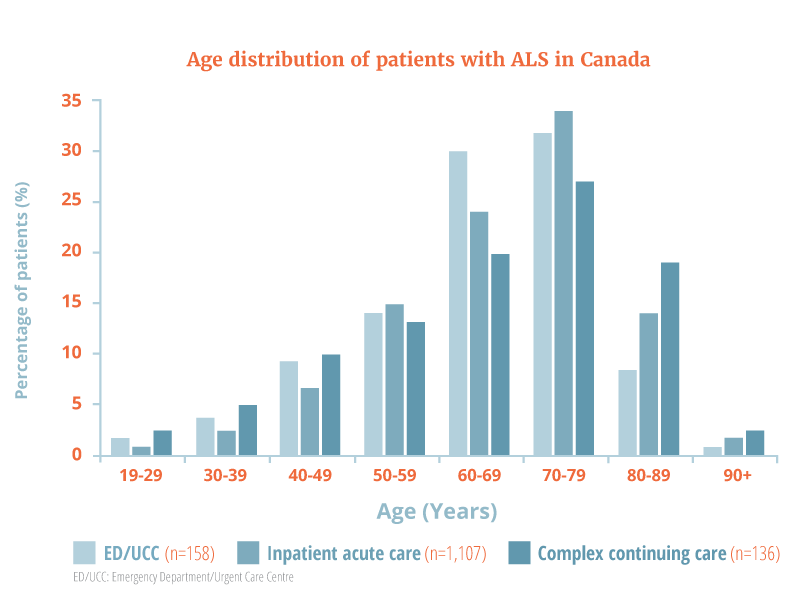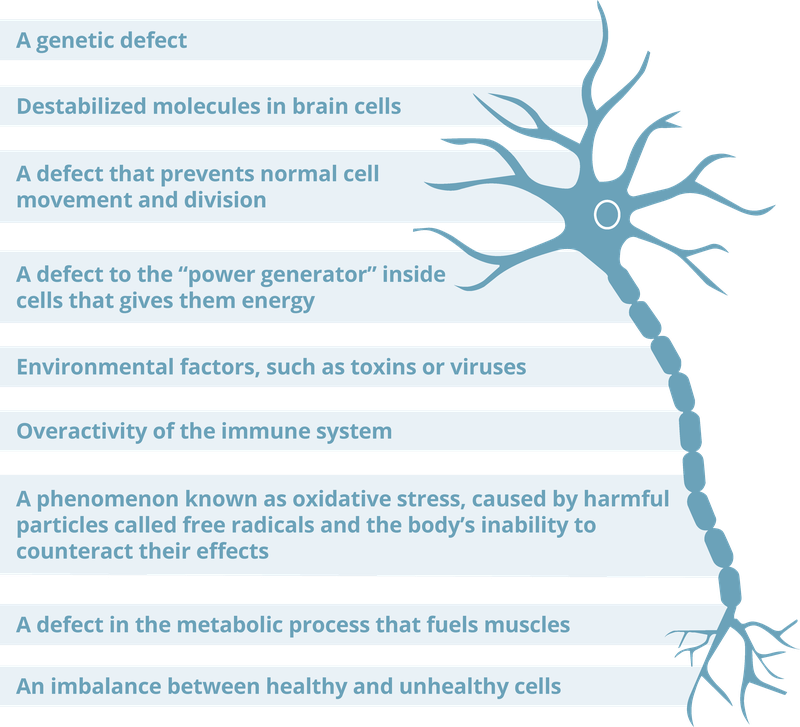
ALS overview
The more you learn about ALS, the better prepared you’ll be. Remember, in addition to doing your research, speaking with your healthcare provider(s) regularly will help you make the most informed decisions moving forward.
Who gets ALS?
-

In an estimated Canadian population of
34 million, approximately 2,000–3,000
people in Canada currently have ALS. -

In any given year, about two new cases of
ALS per 100,000 people will be diagnosed
in Canada.
The relatively low prevalence is potentially understated due to the rapid progression of ALS.
The prevalence of ALS increases with age

Causes of ALS
The contributing factors for developing ALS are not fully understood. However, in some rare cases, ALS may be inherited. There are generally two types of ALS:
-
-
Familial ALS
Affects: 5% to 10% of people with ALS
Cause: Hereditary
-
-
Sporadic ALS
Affects: 90% to 95% of people with ALS
Cause: Unknown
Risk factors among the Canadian population:
- Common age of onset is between 40–70 years of age
- ALS is diagnosed in both men and women of all ethnic and socio-economic groups
- Sporadic ALS occurs more in men than in women (1.6:1)
- Other risk factors include family history (genetic and heredity factors) and smoking
Research suggests many factors can contribute to the loss of motor neurons in the brain, which may include:

